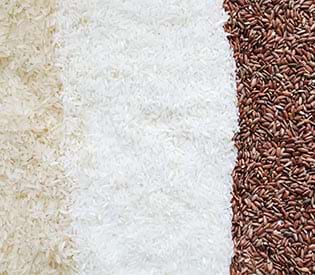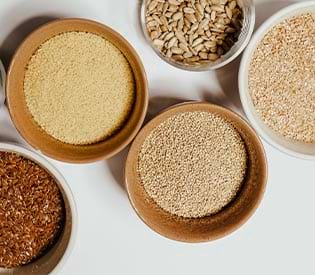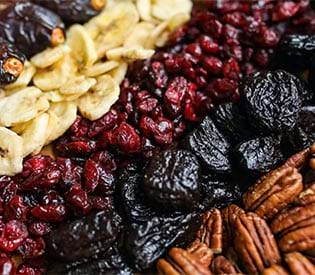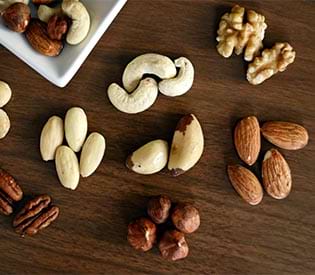Kombu Seaweed
📦🚚 Fast & Free shipping on all orders
What is kombu seaweed?
This marine vegetable belongs to the brown seaweed family and is edible. It's most often used to make a mild, umami-flavored Japanese soup. It is one of the most extensively utilized seaweeds in Korea and Japan, and it is easily available there.
Like wakame, arame, and kurome, which are other varieties of marine kelp, kombu is a member of the Laminariaceae family. The majority of kombu comes from the Saccharina japonica (Laminaria japonica) species, which is widely grown in the seas of Korea and Japan on ropes. In fact, Hokkaidu, and even the Seto Inland Sea in the south, grow over 90% of Japan's kombu.
Minerals including calcium, copper, iron, magnesium, manganese, molybdenum, phosphorus, potassium, selenium, vanadium, and zinc are abundant in kombu. This seaweed and other brown algae are excellent sources of iodine and vanadium, a mineral also present in sea vegetables, which may aid in the conversion of blood sugar into storable carbohydrates and reduce the risk of type 2 diabetes.
How do I use kombu seaweed?
It works well for preparing soups and broths, but it can also be used to wrap fish to give your dinner a tasty flavor and an extra mineral boost. Kombu strips have a sharp edge and might feel a little bit spiky. These work well when dropped into water to create stock or broth.
Kombu seaweed benefits:
The natural taste enhancer kombu has several health advantages. It gives meals a savory umami flavor. In terms of nutrition, kombu has iron, calcium, and trace minerals in addition to iodine, which is necessary for thyroid function. Additionally, kombu includes vitamins A and C.
◉ Improves digestion and reduces gas: Certain amino acids present in kombu may aid in the breakdown of the heavy starches in meals like beans. The process makes it simpler for them to be absorbed. The glutamic acid in this seaweed gives it a delightfully savory taste, while the fiber aids in overall digestion.
Kombu may also lessen the potential for beans to produce gas. When people have intestinal gas, it's usually because they lack the enzymes needed to break down the raffinose sugars in beans. The bacteria in the stomach highly favor these sugars, releasing carbon dioxide and hydrogen, leading to gas and even bloating of the stomach. Digestive enzymes included in kombu may provide a more pleasant legume meal experience.
◉ Potentially Helps Prevent Cancer: Sea veggies may be beneficial in avoiding cancer. Scientists are investigating sea vegetables as cancer-fighting foods since they are known to have anti-inflammatory properties, and we know that inflammation and chronic oxidative stress are risk factors for the development of cancer.
According to a Chinese study that was published in the International Journal of Biological Macromolecules, kombu may be able to prevent liver cancer by acting as an antitumor. Mice that received the seaweed extract had slower tumor growth, which led researchers to say that “LJP has an antitumor effect and could be used as a treatment for cancer.”
◉ Aids in Staving Off Anemia: Because iron contributes to the formation of hemoglobin, which delivers oxygen through the blood and maintains healthy cells, skin, hair, and nails, it is essential to bodily function. Kombu may provide the essential iron needed for good health.
A deficit of healthy red blood cells frequently causes iron deficiency-related anemia. The body is unable to produce hemoglobin because of the missing component. The function of these red blood cells is to remove carbon dioxide from the body's tissues and provide oxygen to them.
You can have fatigue and dyspnea if your iron levels are low or if you run out of supplies. The most vulnerable groups include women who are menstruating, pregnant or nursing; have had major surgery; are vegan or vegetarian; or suffer from ulcerative colitis, to mention a few. Fortunately, kombu is a high-iron meal that may help avoid the symptoms of anemia and iron deficiency.
◉ Improves Thyroid Function: Not only does kombu have iodine, but it is the seaweed with the greatest iodine content, making it one of the world's most iodine-rich foods. Our meals must include iodine for the thyroid to operate correctly and for the appropriate generation of hormones. It could even be beneficial for those fighting hypothyroidism; however, careful monitoring of consumption is necessary if severe thyroid issues are present.
Iodine is thought to give antioxidants that may even help prevent cancer and heart disease, and it is essential for the manufacture of thyroid hormones, according to a paper published in Thyroid Research. Seaweeds are capable of absorbing the natural salts present in the ocean; some types have iodine concentrations that are over 30,000 times higher than those found in the deep blue sea.
According to the American Thyroid Organization, obtaining the daily needs of iodine is critical to preserving a healthy thyroid since our bodies aren't capable of producing it on their own. Because the iodine shortage affects over 40% of the world's population, kombu is an excellent dietary addition.
Where can I buy kombu seaweed?
Buy kombu seaweed from the health food store in the USA, Alive Herbals.
Kombu Seaweed Information (at a Glance):
| Product Name | Kombu Seaweed. |
| Scientific Name | Laminariales. |
| Country of Origin | It is native to Japan. |
| Ingredient | Kombu Seaweed. |
| Taste & Aroma | It's briny and somewhat 'green' tasting and distinctive seaweed odor. |
| Shelf Life & Storage | Shelf Life is about 06 - 24 months. Store it in an airtight container in a cool, dry place and prevent sunlight exposure. |
| Precautions | We requested you, Before consuming spices, herbs, teas or any kind of natural products you consult an expert qualified healthcare practitioner or herbalist. |
| Note | This product information has not been appraised by the Food and Drug Administration (FDA). For educational purposes only. |







